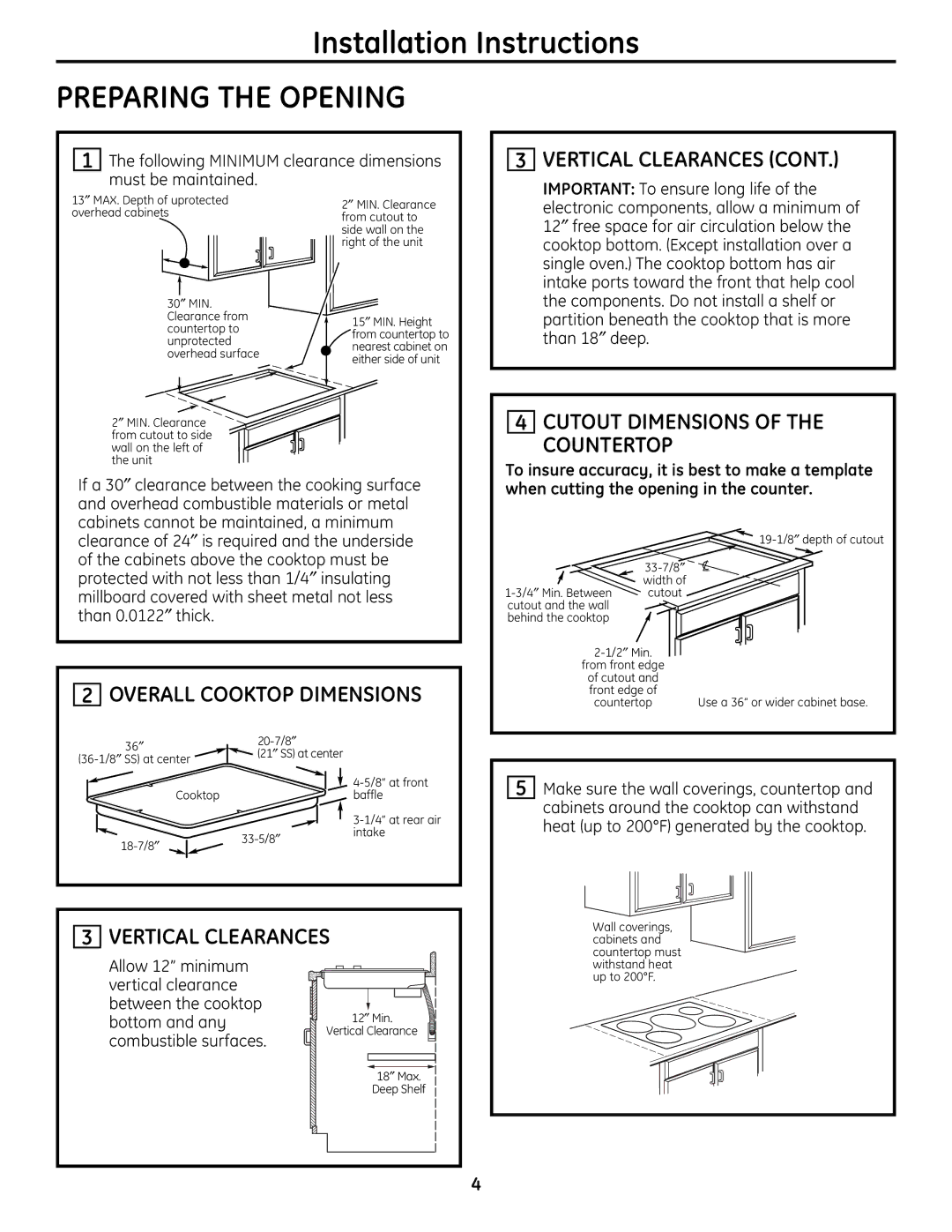PHP960 specifications
The GE Monogram PHP960 is a premium gas cooktop that exemplifies sophistication and innovation in kitchen design. This high-performance appliance is engineered for both home chefs and culinary enthusiasts, offering a seamless blend of style, functionality, and cutting-edge technology.One of the standout features of the PHP960 is its powerful burners, specifically designed to provide precision cooking across a range of culinary techniques. The cooktop boasts five sealed burners, including a high-output 20,000 BTU burner that allows for rapid boiling and searing, as well as a simmer burner that offers an ultra-low 140-degree setting for delicate sauces and simmering. This versatility ensures that every cooking task, from frying to sautéing, can be accomplished with ease.
The PHP960 is further enhanced by its robust cast-iron grates, which are both durable and aesthetically pleasing. These heavy-duty grates provide a stable surface for pots and pans, allowing for even heat distribution and easy movement of cookware. The continuous grate design makes it simple for home chefs to slide heavy pots from burner to burner without lifting.
Another notable aspect of the GE Monogram PHP960 is its integrated edge-to-edge design. The sleek glass surface not only contributes to a contemporary kitchen aesthetic but also provides a smooth and easy-to-clean workspace. The cooktop’s intuitive controls, featuring backlit knob illumination, add to the appliance's premium feel, guiding users to their desired settings at a glance.
Technologically, the PHP960 is designed for efficiency and safety. It includes features such as automatic re-ignition, ensuring that if a flame is accidentally extinguished, it will reignite immediately. Additionally, the appliance is compatible with a variety of ventilation options, including downdraft and overhead hoods, providing flexibility in kitchen design.
In terms of installation, the GE Monogram PHP960 is designed for a built-in configuration, making it a seamless addition to both contemporary and traditional kitchen layouts. Its 36-inch width allows ample cooking surface for multiple dishes simultaneously.
Overall, the GE Monogram PHP960 gas cooktop represents a fusion of luxury and practicality, making it an essential tool for anyone serious about cooking. With its advanced burner system, durable construction, and modern aesthetic, it not only enhances the cooking experience but also elevates the overall kitchen environment.

